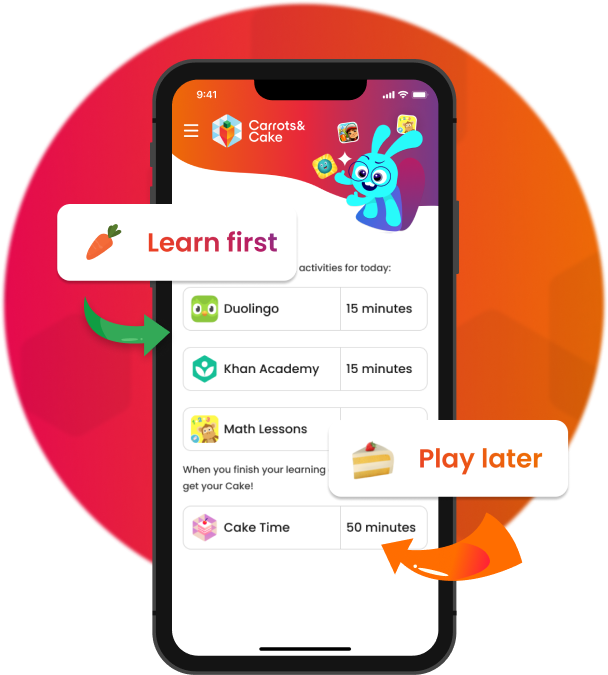


Screen time has become a controversial topic in recent years, with many parents wondering how much is too much. While there is no one-size-fits-all answer, there is general agreement that too much screen time can negatively affect children and teens.
Screen time includes watching TV, using the computer, playing video games, and using a smartphone. It does not include time spent doing homework on the computer or using the internet for other educational purposes.
There is no definitive answer to this question, as it depends on several factors, including the child’s age, developmental stage, and the content of the screen time. In general, however, the American Academy of Pediatrics recommends that children under two should not have any screen time. Children over two should be limited to no more than one hour per day.

We've all heard the importance of parents showing a united front to their kids about rules. It’s a good thing to be united, but what about when you’re not? Screen time is a common issue that parents disagree on. Dr. Ruston looks at strategies parents can use when in disagreement — whether married or divorced. We gain insights from clinical psychologist Laura Kastner, Ph.D., and school counselor Tammy Fisher Huson, Ph.D., who have spent decades working with youth and parents. And we hear from the researcher, Doug Gentile, who followed 1400 families for a year regarding family rules that screen time can be a contentious issue for parents.
One study found that screen time was the top issue that parents fought about with their partner or spouse. Screen time can be a problematic issue because it's ever-changing. What was considered too much screen time ten years ago is now the norm. And as our kids get older, they have more access to screens and more opportunities to use them. Screen time can also be a problematic issue because it's something that we as parents often struggle with ourselves. It can be hard to set limits on screen time when we're addicted to our screens. But it's important to try. Screen time has been linked to kids' sleep problems, anxiety, and depression.
It's no secret that screen time has increased in recent years. With the ubiquity of smartphones, tablets, and other devices, it's easier than ever to be glued to a screen for hours.
But as parents, it's important to set limits on screen time at home. Why? There are several reasons.
First, reducing screen time frees up more time to connect with family and friends. Connecting with others can help ward off stress, depression, and anxiety symptoms.
Second, we often miss out on the fun and beauty happening all around us because of screens. When constantly looking at a screen, we're not taking the time to appreciate the world around us.
Finally, setting screen time limits can be a good way to teach children self-control and patience.
Kids need to learn that they can't always be plugged in and that there are times when it's necessary to unplug and just enjoy life.

So, if you want to reduce screen time in your home, try setting some limits. It can be a great way to improve family relationships and teach kids valuable life lessons.
When it comes to screen time, kids often try to push limits. Be firm and consistent with your rules. Set a good example by limiting your screen time and choosing healthy activities. Screen time limits can be a great way to get the family moving. Finally, remember that you're not alone in this. Screen time is a hot topic for parents worldwide, and many great resources are available to help you navigate this issue. So don't be afraid to seek help if you need it.

The bottom line is that screen time can be a good thing in moderation. But it's essential to be aware of the risks and set limits accordingly. By doing so, you can help your family stay connected and healthy.
A united front is a coalition of groups or individuals with diverse interests who have joined together to achieve a common goal. Screen time limits are often more successful when everyone in the household is on board. A united front can set clear expectations and rules regarding screen time use, which can help reduce arguments and power struggles over screen time use.
Co-parenting may sometimes mean different screen time limits in different homes, leading to a lack of a unified approach. Carrots&Cake sought the expert opinion of Carrie Rodgers-Whitehead to understand how to navigate these conversations with your children. Here's her invaluable advice:
"I recommend presenting it as differing rules for various environments. Just as there are distinct rules at school, at Grandma's house, at the store, at the park, the same applies to different homes. Thus, it shouldn't be segmented as 'our house rules' versus 'their house rules'. Instead, children should understand that the world we inhabit has different rules for different places. Playing a game in the middle of a church service, at the pool, or during a class isn't appropriate. They need to understand these different environments because you won't always be there to guide them. So, encourage them to be proactive in understanding the different rules applicable in different settings." - Watch the full interview here
If you're interested in setting screen time limits at home, talk to your family and see if everyone is on board. Once you have a united front, you can start putting some boundaries. Screen time limits will vary from family to family, but an excellent place to start is by limiting screen time to two hours per day. This will give everyone in the household time to unplug and enjoy other activities.
Also Read: Gentle Parenting and Parent-Child Relationships







